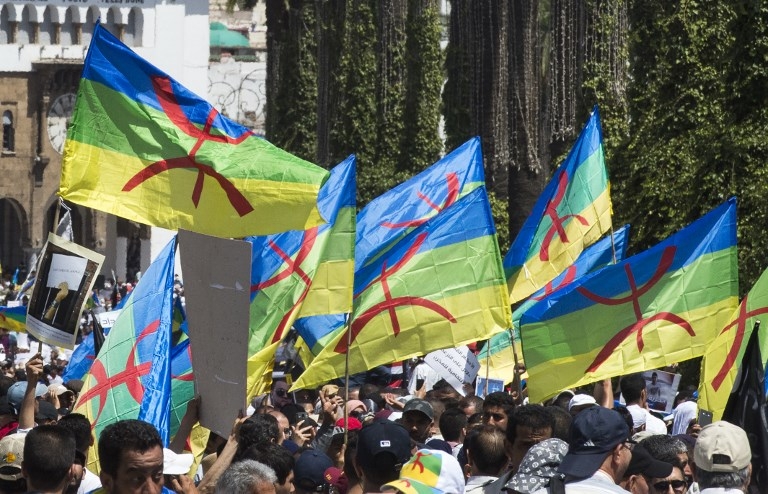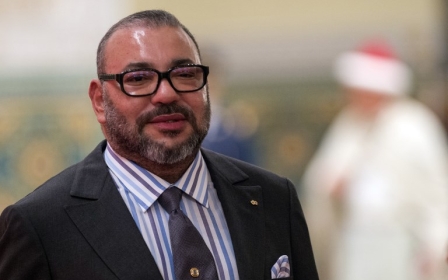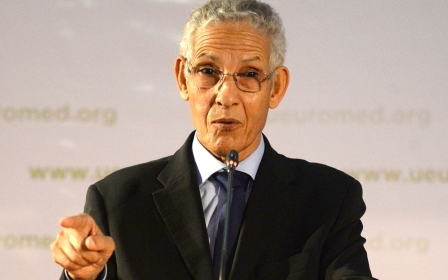Tens of thousands protest in Morocco over jailed Rif activists

Tens of thousands of people took to the streets of Morocco's capital Rabat on Sunday to protest against the jailing of leaders of a popular movement in the predominantly Berber region of Rif.
Carrying pictures of the detained activists and waving Berber blue, green, yellow and red flags, demonstrators chanted "Freedom, dignity and social justice", "Long live the Rif", and "The people want immediate release of Rif detainees."
A court in Casablanca in June sentenced 39 people to terms of one to 20 years in jail in connection with a protest movement that shook Morocco in late 2016 and early 2017.
Protest leader Nasser Zefzafi and three others were handed 20-year jail terms for "plotting to undermine the security of the state".
After the verdicts, a lawyer representing the state said the sentences were lenient and that some of the accused had been indicted for serious crimes including attacking law enforcement officers.
The activists are appealing the sentences and Amnesty International has called for the verdicts to be overturned.
The protests had erupted after a fishmonger was crushed inside a rubbish truck while trying to recover fish confiscated by police in the northern city of al-Hoceima in October 2016.
Detainees and their families had called for Sunday's march, which brought together Berber (Amazigh) groups, leftist opposition parties, human rights groups and the banned Islamist movement Al-Adl wal-Ihsan.
Detainees' relatives, exhausted by a 12-hour bus journey from al-Hoceima to Rabat, expressed grief and frustration as they marched.
"We will keep up our protests until the release of our sons," Zefzafi's mother Zoulikha told Reuters.
Addressing crowds that activists said numbered at least 30,000, Zefzafi's father, Ahmed, invoked post-independence grievances and marginalisation in the Rif region and denounced what he called a political verdict.
"Rif is uniting Morocco in this march," he said. Authorities did not give an estimate of the size of the demonstration.
The al-Hoceima demonstrations, along with protests in the mining town of Jerada in early 2018, marked the biggest unrest in Morocco since Arab Spring protests in 2011 prompted King Mohammed VI to devolve some of his powers to an elected parliament.
After the Rif protests, the king dismissed three ministers and various other officials over a lack of progress in a development plan for the Rif.
Ahmed Dgherni, one of the founders of the Berber movement, called the march "a popular referendum that united different political trends" to back the cause of freedom.
"The security approach adopted by the state derailed the peaceful protests in the Rif, leading to confrontations and arrests," he told Reuters.
Senior Al-Adl wal-Ihsan leader, Omar Amkasso, said the march was "to call for the immediate release of activists and the development of Morocco's marginalised regions".
New MEE newsletter: Jerusalem Dispatch
Sign up to get the latest insights and analysis on Israel-Palestine, alongside Turkey Unpacked and other MEE newsletters
Middle East Eye delivers independent and unrivalled coverage and analysis of the Middle East, North Africa and beyond. To learn more about republishing this content and the associated fees, please fill out this form. More about MEE can be found here.




